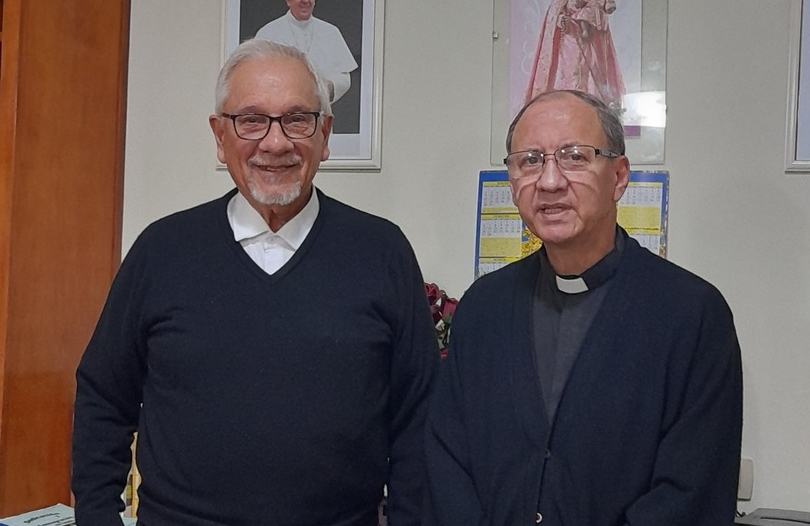 Pastoral perspectives in a rural setting
Pastoral perspectives in a rural setting Pastoral care in a hollowed-out Spain. Diary of a Serrano priest
Pastoral care in a hollowed-out Spain. Diary of a Serrano priestArriving at the city of Luque10 km from the capital, I see a sign that says: The patroness of the family economy is the Virgin of the Rosary. I arrive fifteen minutes before my interview at the parish. I go to the adoration chapel, there are four people, two women and two middle-aged men.
I am received by Father Enrique Meyer, 81 years old and fifty-three years of priesthood. When he arrives he tells me that the new Archbishop has given him two assignments in the Archdiocese. In addition to all that he has, he is Dean of the parishes of the Deanery. He is very calm behind his desk. He is the rector and pastor of the Shrine of Our Lady of the Rosary and is assisted by a cooperating vicar. He has a map of the whole territory. His territory has approximately one hundred thousand inhabitants. It also includes thirty-six chapels in which he is assisted by six other priests who are assigned to other nearby parishes. In the chapels they have Mass three times a month. In the sanctuary every day and on Sunday there are four masses. The daily masses are attended by about four hundred people.
Sacraments
He says that they attend to a thousand children for their first communion, who have to go to confession, but the ceremony is done in the chapels. He comments that there needs to be a better distribution of priests. The parish is divided into four pastoral zones. In addition, they have thirty-nine social territories that they call settlements: there they do missions. These are territories of people who have migrated and have settled in municipal lands or private properties, where they have no title. There they begin to give catechesis and administer the sacraments. It was not easy to enter. We are talking to the families to try to regularize their situation.
Resources
During the pandemic, food was given to seven thousand people daily, for a whole year, in twenty-three soup kitchens. He says that "thanks to that there was no social outbreak".
I ask him how the administration is doing and he smilingly tells me: "we have no economic problems". He shows me the monthly magazine, which has a circulation of a thousand copies, where he reports, among other things, on the economic situation. We see that he has a surplus of 35,000 Us. thanks to the Mass collection. I tell him that it is not in vain that his surname is of Jewish origin. He was also in charge of the financial administration of the Archdiocese for thirty years.
He mentions a priest from the beginning of the last century: Pantaleón García, who built the church, founded the soccer club called Sportivo Luqueñowho plays in the first division. He united the whole town and to this day is considered a hero.
He mentions that a community radio station has just been created. He proudly says that now the Internet is open to everyone. In addition, Luque is a pro-family and pro-life city by decree of the Municipality. He tells me that the people here are fans of his soccer club and of the Virgin of the Rosary.
Another service he offers is that of ten psychologists who attend free of charge to anyone who needs help. When I finish, I ask him what remedies he takes, and he tells me three pills and one more every other day.











